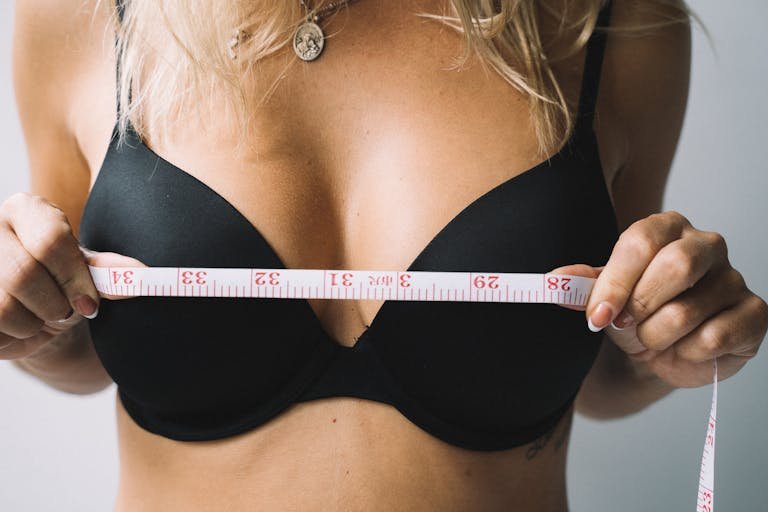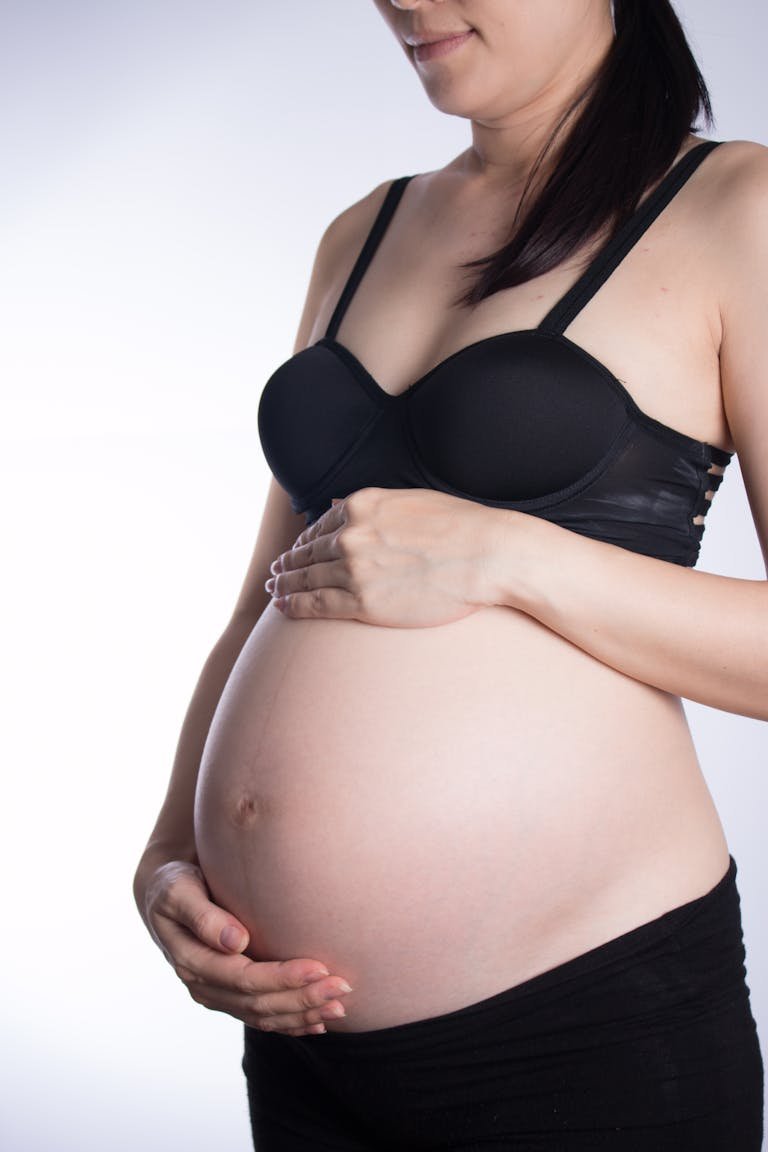What should I eat in pregnancy? Info, ideas & swaps.
Pregnancy is a time filled with some excitement and anticipation—but it can also be a little bit overwhelming, especially when it comes to figuring out what to eat. We all know that nutrition plays a big role in keeping you and your growing baby healthy, but knowing exactly what you should eat in pregnancy can be tricky. Don’t worry—our guide is here to help!

Whether you’re a first-time mum or looking for a refresher, we’re breaking down what you need to know about diet and healthy eating during pregnancy, based on trusted UK guidance. We’ll talk about key nutrients, foods to avoid, meal ideas, and some practical tips to make your pregnancy diet nourishing and enjoyable.
Want to find out about your pregnancy cravings and what they mean? Check out the surprising science behind your cravings.
Why Is a Healthy Diet Important in Pregnancy?
Your body is working overtime to grow and nourish your baby, so the food you eat directly impacts both of your health. Eating a balanced diet during pregnancy helps support your baby’s development and keeps your energy levels stable, reduces the risk of complications like gestational diabetes and preeclampsia, and sets the foundation for your baby’s lifelong health.
By focusing on key nutrients and making smart food choices, you’re not only giving your baby the best start but also supporting your own health as your body goes through rapid changes.

What Should I Eat in Pregnancy? Let’s Talk Nutrients
To keep you and your baby in tip-top shape, it’s essential to focus on getting the right nutrients from a varied and balanced diet. Let’s break down the most important nutrients for pregnancy and how to include them in your meals.
1. Folic Acid
Folic acid (or folate) is essential in the early stages of pregnancy because it helps reduce the risk of neural tube defects, such as spina bifida. Ideally, women should take a folic acid supplement (400 micrograms daily) from before conception (you may see this referenced as a prenatal supplement) until at least the 12th week of pregnancy. But don’t worry—if you didn’t take it before getting pregnant, it’s not too late to start. Grab some now!
Want to give yourself a folate boost? Natureal sources of folate-rich foods include: Leafy greens (like spinach, kale), fortified breakfast cereals, chickpeas, beans, and oranges.
Quick Recipe Idea:
Spinach and Chickpea Curry
Sauté some garlic and onions in olive oil, add chopped spinach and a can of chickpeas, stir in a bit of curry powder, and pour in coconut milk. Simmer until the spinach wilts, and enjoy with brown rice.

2. Iron
Iron is crucial during pregnancy because it helps make extra blood for both you and your baby. A lack of iron or an iron deficiency can lead to anemia, which can make you feel tired and weak. The NHS recommends including iron-rich foods and possibly taking an iron supplement if advised by your midwife or GP.
Iron-rich foods: Lean red meat, beans, lentils, tofu, fortified cereals, dark leafy greens, and dried fruit like apricots.
Quick Tip: Pair iron-rich foods with vitamin C (like oranges, strawberries, or tomatoes) to help your body absorb iron more efficiently. For example, enjoy a spinach salad with sliced strawberries and a drizzle of balsamic vinegar.

3. Calcium
Calcium is important for your baby’s developing bones and teeth. During pregnancy, your body may pull calcium from your own bones if you’re not getting enough, so it’s vital to ensure you’re meeting your calcium needs and your baby is getting a healthy start.
Sources of calcium: Dairy products like milk, cheese, and yogurt; fortified plant-based milks; tofu; and leafy greens such as kale and broccoli.
Delicious Snack Idea:
Greek Yogurt Parfait
Layer Greek yogurt with fresh berries and a sprinkle of chopped nuts for a calcium-packed snack that also delivers protein and healthy fats.

4. Omega-3 Fatty Acids
Omega-3 fatty acids, particularly DHA, are essential for your baby’s brain and eye development. The NHS recommends eating two portions of fish per week, one of which should be an oily fish like salmon, sardines, or mackerel. However, avoid fish high in mercury, such as shark, swordfish, and marlin.
Other omega-3 sources: Flaxseeds, chia seeds, walnuts, and algae-based supplements.
Easy Recipe Idea:
Salmon and Veggie Traybake
Place salmon fillets on a baking tray with your favourite vegetables (e.g., broccoli, sweet potatoes, courgettes). Drizzle with olive oil and season with herbs like rosemary or thyme. Roast in the oven for 20-25 minutes for a simple and nutritious dinner.

5. Protein
Protein is essential for your baby’s growth and development, particularly in the second and third trimesters. Aim to include a source of protein in every meal to help you stay full and energized.
Protein-rich foods: Lean meats, poultry, eggs, beans, lentils, tofu, nuts, and seeds.
Breakfast Idea:
Egg and Veggie Scramble
Whisk a couple of eggs and scramble them in a pan with sautéed veggies like spinach, tomatoes, and peppers. Serve with wholegrain toast for a protein-packed start to your day.

6. Eating a bit of what you like
There’s no doubt about it – pregnancy can be hard! It wouldn’t be right for us to produce an article dictating you eat kale and strawberries and not suggest you also have a moderate amount of what you fancy eating!
It’s important to stay healthy and within a good weight range, but indulging in chocolate, sweets, crisps and dips and your favourite fast food once in a while isn’t going to harm anyone. Just keep things balanced, be sensible and enjoy snacks in moderation. Do not deprive yourself of the things that make you happy!
Foods to Avoid During Pregnancy
While a balanced diet is important, there are certain foods that you should avoid during pregnancy due to the risk of foodborne illness or harm to your baby’s development. Here’s a quick rundown:
- Raw or undercooked eggs: Choose eggs with the British Lion stamp, as these are safe to eat raw or runny. Otherwise, ensure they’re fully cooked.
- Raw or undercooked meat: Cook all meat thoroughly to avoid the risk of toxoplasmosis or salmonella.
- Unpasteurized dairy products: Stick to pasteurized milk, yogurt, and cheeses. Avoid soft cheeses like Brie, Camembert, and blue-veined cheeses unless cooked thoroughly.
- Pâté: Both meat and vegetable pâté can contain listeria, so it’s best to avoid these.
- Certain fish: As mentioned earlier, avoid fish high in mercury, like shark, swordfish, and marlin, and limit tuna to two steaks or four cans per week. As tasty as it is, it’s best to avoid raw fish sushi for now, but you can indulge in chicken sushi rolls and cooked tuna versions!
- Raw shellfish: This carries a risk of food poisoning, so ensure all shellfish is fully cooked.
If you’re craving any of these foods, there are often great alternatives! For example, if you love soft cheese, opt for pasteurized varieties like cream cheese or mozzarella. For pâté lovers, try mashed avocado or hummus on toast instead.
What Should I Eat in Pregnancy? Making Smart Swaps
Cravings are a normal part of pregnancy, but it’s good to balance them with healthy choices. Here are some ideas for swapping less healthy cravings for more nutritious options:
- Craving something sweet? Swap cakes or biscuits for fresh fruit with a drizzle of honey or a small piece of dark chocolate.
- In the mood for salty snacks? Instead of crisps, try a handful of unsalted nuts, homemade popcorn, or sliced cucumber with hummus.
- Missing alcohol at social events? Mocktails made with sparkling water, fresh fruit, and mint can feel just as festive without the alcohol. We love Robinson’s Lime and Mint Cordial with diet lemonade for a really refreshing drink!

Planning Balanced Meals During Pregnancy
Eating a balanced diet doesn’t have to be complicated. The NHS recommends following the Eatwell Guide, which provides a visual breakdown of what your plate should look like:
- Half your plate: Vegetables and fruits
- A quarter of your plate: Carbohydrates like whole grains (brown rice, wholemeal bread, oats)
- A quarter of your plate: Protein-rich foods (meat, fish, eggs, beans, pulses)
Make sure to drink plenty of water throughout the day to stay hydrated. It’s recommended that pregnant women drink around 6-8 glasses of water per day.

Sample Day of Meals
Here’s a simple meal plan to inspire you:
- Breakfast: Porridge made with oats and fortified plant-based milk, topped with sliced bananas and a sprinkle of chia seeds.
- Snack: A small handful of almonds and a piece of fruit like an apple or pear – or a small bag of chocolate buttons!
- Lunch: Wholegrain wrap filled with grilled chicken, avocado, spinach, and a dollop of Greek yogurt. Add a couple of Baby Bels on the side for extra calcium.
- Snack: A pot of Greek yogurt with a spoonful of mixed berries.
- Dinner: Stir-fried meat of choice or tofu with mixed vegetables (broccoli, carrots, peppers) and rice. Drizzle with a low-sodium soy sauce and a squeeze of lime.
- Dessert: A few squares of chocolate, melted and drizzled over some strawberries.

Pregnancy Supplements: What You Need
While a healthy diet should give you most of the nutrients you need, there are some supplements that are particularly important during pregnancy:
- Folic Acid: As mentioned earlier, take 400 micrograms daily until the 12th week of pregnancy.
- Vitamin D: The NHS recommends taking a daily 10 microgram vitamin D supplement to support bone health and immune function.
- Iron: If your iron levels are low, your doctor or midwife may recommend an iron supplement.
Remember to talk to your healthcare provider before starting any supplements to ensure they’re appropriate for your needs.

Staying Active During Pregnancy
While diet plays a huge role in keeping you healthy during pregnancy, don’t forget about the importance of staying active. Gentle exercise like walking, swimming, or prenatal yoga can help boost your mood, improve sleep, and prepare your body for labour. Aim for 150 minutes of moderate exercise a week, but listen to your body and rest when you need to. There’s a whole load of information on exercise during pregnancy on the NHS website too.

Final Thoughts
Pregnancy is a wonderful time to focus on nourishing your body and your baby. By following a balanced diet rich in key nutrients, staying hydrated, and making a few smart food choices, you can set the foundation for a healthy pregnancy.
Remember, the answer to “What should I eat in pregnancy?” is all about variety, balance, and enjoying the journey of nourishing yourself and your baby. If you’re ever in doubt or need advice tailored to your specific needs, don’t hesitate to consult your midwife or GP in clinic.
With a little planning and creativity, you’ll find that healthy eating during pregnancy can be both enjoyable and delicious. Bon appétit!
Read more from Pregnancy Pal
-
Is It Normal to Feel Exhausted in Early Pregnancy?
Exhaustion in early pregnancy can feel overwhelming. Many people are surprised by how intense fatigue can be, particularly in the first trimester. Feeling extremely tired in early pregnancy is common and usually linked to hormonal changes. Early pregnancy exhaustion is not the gentle sort of “I stayed up too late watching telly” tired. It is…
-
Pregnancy Bra Fitting Guide: How to Get the Perfect Fit
If someone had told me that getting fitted for a bra would be one of the most helpful things in pregnancy, I might have blinked slowly and nodded while scrolling Instagram. But let’s be honest, when your body is doing the most dramatic redesign since puberty, a bra fitting in pregnancy moves from “optional” to…
-
Why Do My Breasts Hurt in Early Pregnancy?
Breast tenderness is often one of the earliest signs of pregnancy. For some people it is mild discomfort or an unusual tingling sensation around the breast, while for others it can feel surprisingly intense, making everyday movement uncomfortable. When this pain appears early on it can raise questions about what is normal and whether it…



